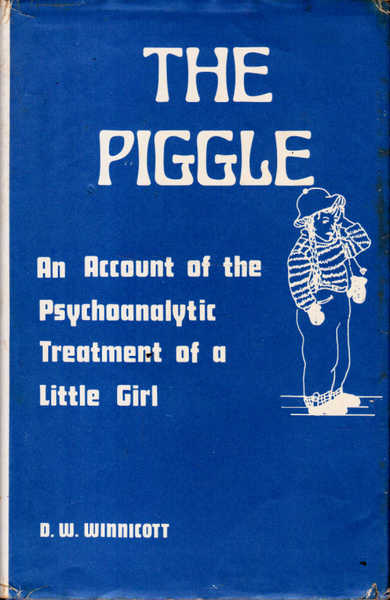
Ellen Goldberg, PhD, is a Psychotherapist Member of BPSI. Her below remarks originally appeared in the Winter 2018 Hann Sachs Library Newsletter, which can be read here.
D. A. Luepnitz (2017) International Journal of Psychoanalysis, 98(2), 343-370. Click here to access the online publication or contact library@bpsi.org to request a copy.
In this remarkable article, the author Deborah Anna Luepnitz, a psychotherapist from Philadelphia, reports on her conversations with ‘Gabrielle’, or the Piggle, the famous Winnicott’s patient. Their communication started by a correspondence because both women were providing psychoanalytic therapy to the homeless and other socially excluded adults. The series of interviews with the adult ‘Gabrielle’ recorded by Luepnitz on her visits to London reveal a complex family drama. The Piggle’s mother came from an extraordinary wealthy family who had to leave their native Czechoslovakia to survive the upcoming persecution of Jews. The majority of the family perished in the Holocaust, but the Piggle’s mother, aged 11, was sent to a boarding school in England. As an 18-year old she then traveled alone to Paris to rescue her 8-year old brother. The article brings up an interesting aspect of Gabrielle’s case: the struggle around her name. Apparently, her given name was not used because it was associated with her namesake aunt who had died in the concentration camp. Winnicott famously called her the Piggle, but then decided to switch to her middle name. An expert in Lacanian theory, Luepnitz highlights how this ambivalence of names and the change of languages may affect the subjectivity and personal identity over the generations. In my opinion, the level of the third generation trauma appears to be new information worthy of greater clinical exploration. I also appreciated the snippets of actual dialogues where the two women express their ideas about social justice and inequality.
Ellen Goldberg, PhD, is a Psychotherapist Member of BPSI. She has a private practice in Newton, MA and she is on the faculty of the Brenner Center at William James College.
Ellen Goldberg can be contacted by email here.
***
The opinions or views expressed on the Boston Psychoanalytic Society & Institute (“BPSI”) social media platforms, including, but not limited to, blogs, Facebook posts and Twitter posts, represent the thoughts of individual contributors and are not necessarily those of the Boston Psychoanalytic Society & Institute or any of its directors, officers, employees, staff, board of directors, or members. All posts on BPSI social media platforms are for informational purposes only and should not be regarded as professional advice.
BPSI does not control or guarantee the accuracy, relevance, timeliness or completeness of information contained in its contributors’ posts and/or blog entries, or found by following any linked websites. BPSI will not be liable for any damages from the display or use of information posted on its website or social media platforms. BPSI cannot and does not authorize the use of copyrighted materials contained in linked websites.

